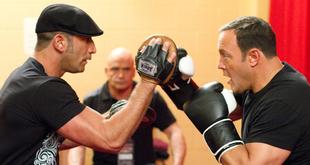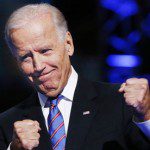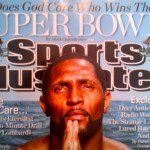At the height of the Jeremy Lin euphoria last winter, political columnist David Brooks delivered in The New York Times a reflection on faith and sports and a powerful argument for why he should remain a political columnist. Jeremy Lin is an Asian-American Harvard graduate playing in the NBA, but his “biggest anomaly,” Brooks suggested, is that Lin is “a religious person in professional sports.” The heart of the anomaly, according to Brooks, is that “the moral ethos of sport is in tension with the moral ethos of faith, whether Jewish, Christian or Muslim.”
Brooks, who has a vast background to call upon as both a former elite athlete and a former coach and commentator on professional sports, goes on to explain that the moral ethos of modern sport is focused on domination and supremacy, self-promotion, self-assertion and pride. The athlete’s “primary virtue is courage — the ability to withstand pain, remain calm under pressure and rise from nowhere to topple the greats.” Ascent toward athletic greatness is a “straight shot,” a linear climb to greatness. By contrast, the religious ethos “is about redemption, self-abnegation and surrender to God.” Since the primary virtue is humility, the religious person advances “by way of inversions.” Lose yourself to find yourself. Sacrifice to gain. The last shall be first.
Brooks cited my interview with Jeremy Lin from 2010, in which Jeremy confessed to struggling with what it means “to be selfless and submit myself to God” on the basketball court. Lin will never figure it out, Brooks said, because “the two moral universes are not reconcilable.”

Believe it or not, I was reminded of this discussion last weekend when I saw an advance screening of Here Comes the Boom, a comedy in which Kevin James (a devout Catholic) plays the main character, Scott Voss, who sets out to save his school’s music program by fighting — and losing — in mixed-martial-arts (MMA) matches. The most interesting scene religiously comes after Voss proves his toughness in the practice ring against three MMA fighters who bludgeon the blubbery schlub into a pulp. Having demonstrated his toughness, James is invited to join the MMA fighters for a little pasta carbo-loading afterward.
Over spaghetti, trainer Mark DellaGrotte (an actual MMA coach, playing himself) tells the story of Jacob wrestling all night against God in Genesis 32. The fighters listen respectfully. Jacob, DellaGrotte says, would not surrender and would not let go of God. By morning, though wounded, Jacob had won God’s respect. You, DellaGrotte tells Voss, have won our respect today.
It is, without calling itself such, an impromptu Bible study amongst the manliest of men. It’s presented naturally, organically, as though it’s entirely unexceptional for hyper-masculine men to discuss scripture together. And it’s exactly like scores of conversations I’ve enjoyed amongst believing athletes. When Voss and his coaches hold hands and pray before a big fight, that too is like countless prayers I’ve shared with other athletes prior to competitions. As I’ve explained elsewhere, the gym where I trained was the great laboratory of my faith. So even after my gymnastics career was finished, I went about interviewing numerous athletes of faith (Michael Chang, Tony Dungy, various gymnasts) about the intersection of sports and the spirit.
So I asked Kevin James, who is both a fan and a friend of many mixed-martial-arts fighters, whether faith is common in the MMA world. Faith, he said, “plays a huge part for the fighters I’ve met.” Although they “seem like gladiators going at each other in a cage,” the athletes are real people who are fighting to provide for the people they love. “The Bible says that there is no greater love than to lay down your life for your friends,” said James. “That’s really what we wanted to show.”
So if the religious athlete is so profoundly anomalous, why is the religious athlete so pervasively common? If the moral ethos of sport and the moral ethos of religious faith are so starkly opposed, why do so many athletes seem to hold them together? Are they all just fooling themselves?
Brooks is absolutely correct about the moral ethos of faith. As the brilliant nineteenth-century Christian writer Soren Kierkegaard wrote, the person of faith must “will his own downfall.” While all of the major religious traditions emphasize humility and servanthood, Christianity in particular emphasizes the way of the cross, dying to the (false) self, crucifying the flesh and its worldly desires.
What Brooks fails to appreciate, oddly, is the second part of the inversion. Yes, faith inverts worldly values by glorifying humility, surrender, self-abnegation. But that’s only the first part in a paradoxical double-inversion. God then makes what is weak strong, what is powerless powerful, what is humble great, what is last first. We give ourselves unto death — and God gives new life. We surrender ourselves — and are raised up as victors. We confess our weakness — and receive God’s strength.
These will be very familiar patterns for most athletes — precisely because the course of athletic greatness is not a linear “straight shot.” The overwhelming majority of athletes, even the greatest ones, will endure countless defeats before achieving a meaningful victory. The overwhelming majorities of athletes must be humbled in order to listen to her coaches, confront her weaknesses and learn to work with her team. The story of Jeremy Lin — as I tell in my book — is a story of inversion. Jeremy had to be broken (by an ankle injury in his junior season in high school) before he could become the leader of his team. He had to humble himself to work as he had never worked before, to become a better practice and team player, to become a better point guard who puts other people in scoring position, in order to achieve the victories he achieved. Jeremy might have brandished his talents instead of helping his teammates score, but he chose to humble himself and follow what he perceived as God’s guidance — and God raised him up.
Besides, what of the countless biblical stories of great warriors and great leaders, men and women who showed courage in the face of overwhelming odds? Moses and Joshua, Elijah and Elisha, Samson and David, and the apostles and disciples who faced great danger in their mission? These stories too are a part of the storehouse of our faith.
There is, to be sure, a certain culture of athletic celebrity that glories in arrogance and acquisition and self-aggrandizement. But to call that “the moral ethos of modern sport” is simplistic. It’s the moral ethos of athletic commercialism, but far removed from the actual experience of the athlete. So many other athletes illuminate another path — a path of enormously hard work, of surrendering your pride, of finding through our weakness the strength of God, of humbling ourselves and entrusting the outcome to God.
Christian athletes in some respects are reliving the ancient stories of faithful warriors and kings — a tradition that has been preserved throughout Christian history. The likes of Tim Tebow and Jeremy Lin and Mariano Rivera (and the MMA fighters Kevin James describes and countless other faithful athletes) remind me of Arthurian Knights — warriors of skill and courage who do not place their trust in their prowess and strength, who pursue their mission with humility and piety, who know that the surest path away from the grail is the path of pride, but know too that God is not compelled to give the grail even to the humble and pure of heart.
















